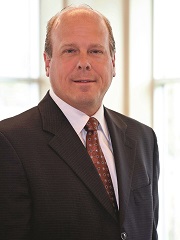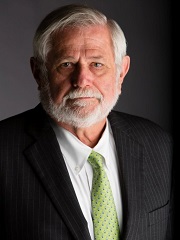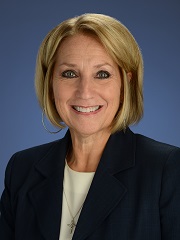Beyond compliance: Healthcare CFOs face many situations in which ethics can guide decision-making
From deciding on capital allocations to collaborating on efforts to reduce waste, healthcare CFOs have many opportunities to set a tone that influences behavior throughout their organizations.
- Being ethical is about more than just following the rules — it’s about leading with integrity and courage.
- Choosing where to allocate limited capital is one of the most difficult ethical dilemmas facing finance leaders.
- CFOs should model ethical behavior and serve as examples for other leaders in the C-suite and for their departments.
When CFO Michael Szubski reads headlines about healthcare providers defrauding the government or engaging in unethical behaviors, he considers such events to be failures of leadership.

“You hear some bad stories out there and you wonder how a culture allowed for something so negative to happen,” said Szubski, who is chief financial and system services officer at University Hospitals (UH) in Cleveland.
At UH, an integrated delivery system that serves 15 counties in Northeastern Ohio and has more than $4 billion in annual revenues and $5.2 billion in assets, Szubski and his colleagues in the C-suite aim to create an ethical culture. For seven consecutive years, the organization has been designated one of the most ethical companies by the Ethisphere Institute.
At the heart of UH’s ethical culture is a robust corporate governance and compliance program, Szubski said. The health system’s 26,000 employees are trained on the organization’s five core values, including integrity, which leaders define as “a shared commitment to do what is right.” The others are excellence, diversity, compassion and teamwork.
Sidebar: The most pressing ethical issues in healthcare
Sidebar: Tips for creating a more ethical culture
The courage to be a CFO
Being ethical goes beyond being compliant.
“As a finance leader, being ethical requires a lot more thought,” said James Grigg, CFO of Greater Hudson Valley Health System in Middletown, New York. “Being compliant merely means you’re following the rules. You’re doing what’s expected. Being ethical requires you to think about actions, repercussions, perceptions and what’s in the best interest of the community we serve. It takes more time and more work to be ethical.”

Aaron Beam, the former CFO of HealthSouth (now Encompass) in Birmingham, Alabama, agrees. “Being ethical takes a lot of courage,” he said. “It’s not the kind of courage you need to go into a building that’s on fire to save somebody’s life, but just having the day-to-day courage to do the right thing, to be ethical, is difficult.”
Beam learned this lesson the hard way after spending three months in prison for accounting fraud in 2003. Today, he lectures on the importance of corporate ethics. Rather than an innate quality, he believes acting ethically is a learned behavior that leaders need to work on so they can “do the right things when negative situations come up.”

Although ethics and compliance differ, ethical behavior is what drives compliance, said Christine Hogan-Newgren, chief compliance and internal audit officer at The University of Kansas Health System in Kansas City. For example, an ethical CFO would not try to “buy” physician referrals, which would be a violation of Stark Law. Nor would that CFO allow a billing issue to create duplicate claims.
Instead, ethical leaders proactively ensure their department’s processes comply with regulations. They also make certain their own behavior aligns with corporate policies, such as rules prohibiting employees from accepting tickets from vendors and attending sporting events with vendors.
“When you have an ethical attitude, you at least run those scenarios by your compliance officer to make sure that it falls within hospital policy,” Hogan-Newgren said.
Making ethical allocations
One of the most difficult ethical dilemmas for finance leaders can be choosing where to allocate capital: Should they fund profitable services that will sustain their organization and mission or other services that may help the community but may not offer the same ROI?
“The capital appetite for an organization of our size can be insatiable,” said Szubski of UH, which recently invested $26 million in a new community health center in an underserved area in Cleveland. (Although the center was supported by donations, ongoing operations likely will not be profitable, he said). When choosing where to direct capital, leaders at UH consider several criteria, including safety, community need and ROI.
“To be ethical, capital allocation needs to be a collaborative process and you need to consider a lot of different aspects other than just return on investment,” says Grigg of GHVHS, which has been recognized as a “most ethical” company for two consecutive years by the Ethisphere Institute.
Health system leaders recently invested in a Level II trauma program to benefit the community and soon will break ground on an addition that will double the size of the emergency department. The collaborative process on those two ventures “was internal, but our physicians were very much involved,” Grigg said. “The trauma program and expanded ED project mean that we seldom need to fly an emergency patient by air for trauma/emergency care.” While such investments may offer little financial return, they are the right choices to meet community needs, he said.
Working with clinicians ethically
Increasingly, CFOs and other finance leaders are being asked to collaborate with clinicians on initiatives targeting waste and inappropriate utilization. But some finance leaders may feel like they are overstepping their bounds when working on strategies that could influence how physicians prescribe drugs, select implants or order imaging tests.
Here again, CFOs say, the key is collaboration. At UH, clinical and financial leaders work together on high-reliability teams to reduce variation in care and eliminate waste in specific service areas. In fact, leaders have created teams for each of the Medicare care-episode bundles in which the organization participates. Having each team led by a physician champion — not a finance leader — ensures that the group’s focus is “less about cost reduction than it is about assuring quality,” Szubski said.
In today’s value-focused environment, Szubski also believes that finance leaders have an ethical obligation to help clinicians understand the cost structure of the care they provide. “Physicians want to do the right thing, such as reducing waste and lowering length of stay,” he said, “but as they make care decisions, they want to know that the information they have is accurate.”





